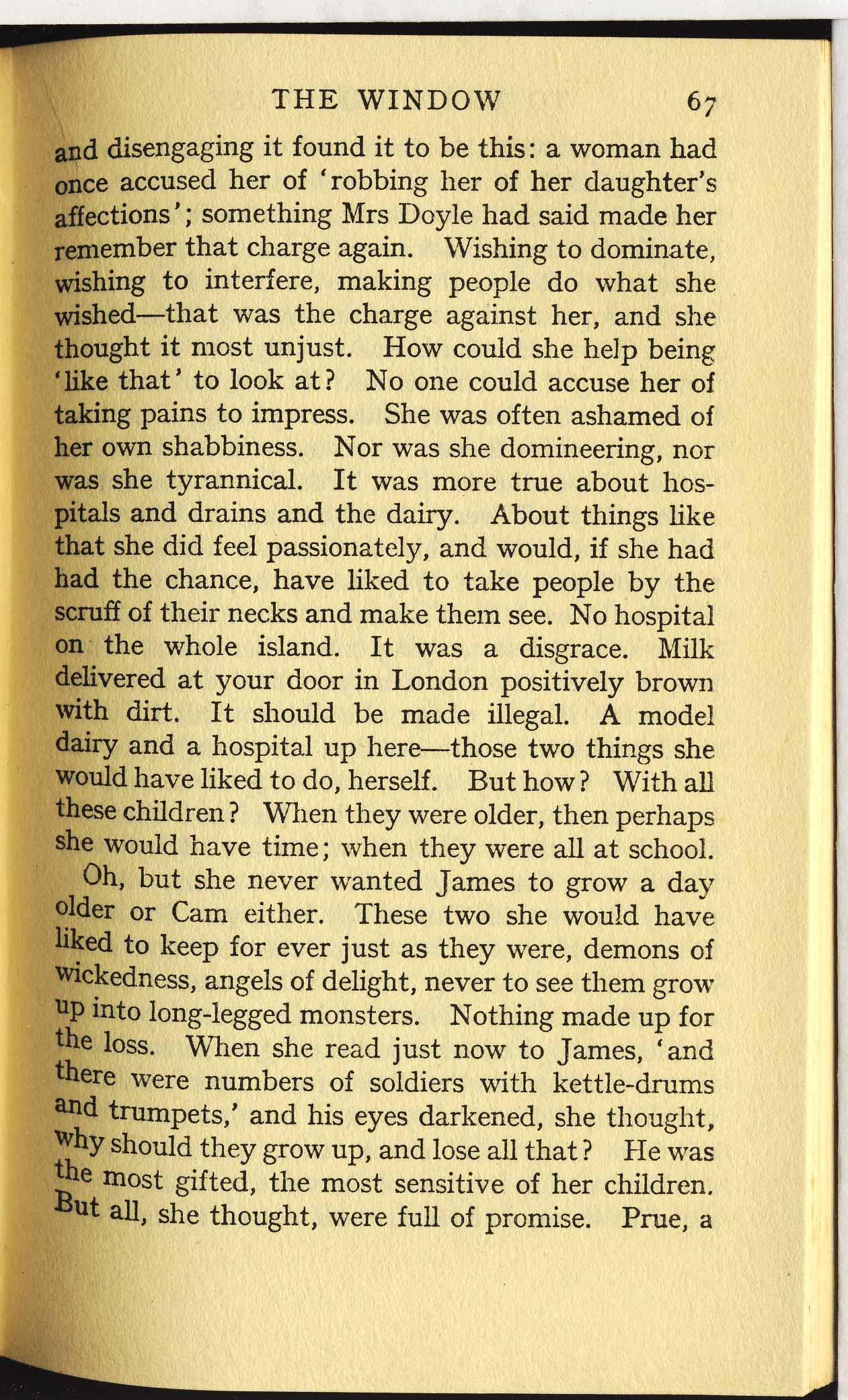
THE WINDOW 67and disengaging it found it to be this: a woman hadonce accused her of 'robbing her of her daughterŌĆÖsaffections'; something Mrs Doyle had said made herremember that charge again. Wishing to dominate,wishing to interfere, making people do what shewishedŌĆöthat was the charge against her, and shethought it most unjust. How could she help being'like that' to look at? No one could accuse her oftaking pains to impress. She was often ashamed ofher own shabbiness. Nor was she domineering, norwas she tyrannical. It was more true about hos-pitals and drains and the dairy. About things likethat she did feel passionately, and would, if she hadhad the chance, have liked to take people by thescruff of their necks and make them see. No hospitalon the whole island. It was a disgrace. Milkdelivered at your door in London positively brownwith dirt. It should be made illegal. A modeldairy and a hospital up hereŌĆöthose two things shewould have liked to do, herself. But how? With allthese children? When they were older, then perhapsshe would have time; when they were all at school.
Oh, but she never wanted James to grow a dayolder or Cam either. These two she would have
liked to keep for ever just as they were, demons ofwickedness, angels of delight, never to see them growup into long-legged monsters. Nothing made up forthe loss. When she read just now to James, ŌĆśandthere were numbers of soldiers with kettle-drumsand trumpets,' and his eyes darkened, she thought,why should they grow up, and lose all that? He was
the most gifted, the most sensitive of her children.
But all, she thought, were full of promise. Prue, a








